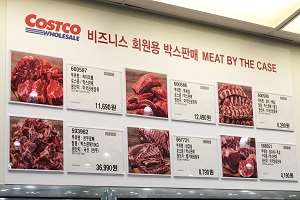When the U.S. Meat Export Federation (USMEF), contractor to the beef checkoff, is making plans to increase the movement of U.S. beef into export markets, they keep a “3-D” strategy in mind: 1) Develop, 2) Displace and 3) Defend. That is, Develop new markets and new sectors in existing markets, Displace the competition, and Defend the U.S. market share against aggressive competition by other beef exporters worldwide.

Developing New Beef Markets - A Case Study
Developing a new market for U.S. beef is not an overnight endeavor. Consider Central America: The region is home to many countries at various stages of development, yet the initial strategy in each country is to bring buyers and sellers together. Your beef checkoff is supporting this effort through the annual Latin American Buyer Showcase, which brings hundreds of buyers and sellers together. Once those initial relationships have been established the growing pool of loyal beef users makes the product visible to other players, especially among those in the hotel, restaurant and institutional (HRI) sectors, and the impetus for them to also purchase U.S. beef grows stronger.
Initially, many accounts in these target markets have been conservative with their U.S. beef orders. However, through educational seminars and workshops on alternative beef cuts, importers began diversifying their U.S. beef portfolios, adding brisket, top blade, flap steak and sirloin. Some importers have also begun to explore further opportunities with U.S. beef at retail - through both traditional and online purveyors.
Displacing the Competition - A Case Study
Multiyear efforts funded by the checkoff have been effective in replacing Australian beef in the meat cases of key retail chains in the country in South Korea. There, Costco store managers were provided with information about increasing consumer confidence in the safety of U.S. beef, along with consumer perception of the product’s quality.
Because of these efforts, 15 Costco warehouses are converting from imported chilled beef from Australia to 100 percent U.S. product!
With the increasing number of U.S. beef end-users in the market, as well as growth in consumer confidence in the product (now at 54 percent), Korea’s imports of U.S. beef will finally surpass imports of Australian beef. In 2016, U.S. beef exports to Korea jumped by 42 percent to nearly 395 million pounds, valued at $1.06 billion dollars - an increase of 31 percent from the previous year.
Defending Strong Markets for U.S. Beef - A Case Study
Despite the challenges of Mexico’s weak peso and higher U.S. prices, U.S. beef is performing well in Mexico. Checkoff-support efforts leveraged the increased supply of U.S. beef to win back customers in Mexico - especially by promoting economically priced alternative cuts such as rounds, which add quality and variety to menus and meat cases.
Driving further growth, USMEF collaborated with partners in the Mexican market to tap into new market segments and channels with major importer, processor and retailer accounts. For example, working with a new account, Grupo Bafar (a major importer and further processor that owns about 250 small convenience stores throughout Mexico), USMEF set up a joint promotion in 87 Carne Mart meat boutique stores located primarily in the Yucatan and Chihuahua regions. After promoting a product mix of nine different U.S. beef cuts, U.S. beef sales were up 37 percent in volume compared to the previous year.
Click here to see more...